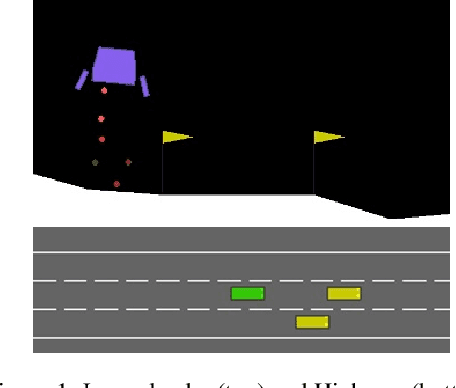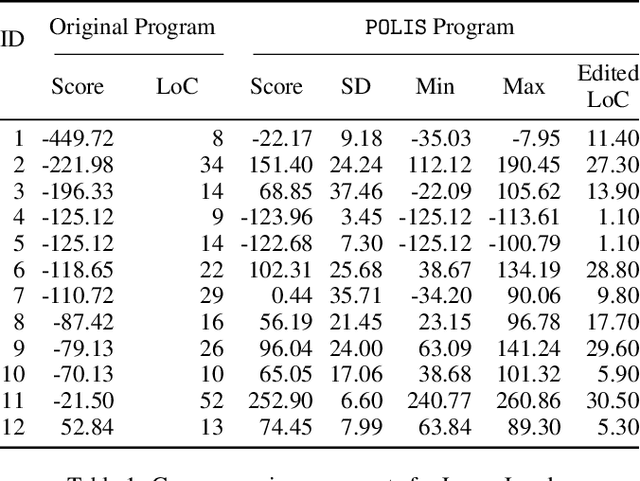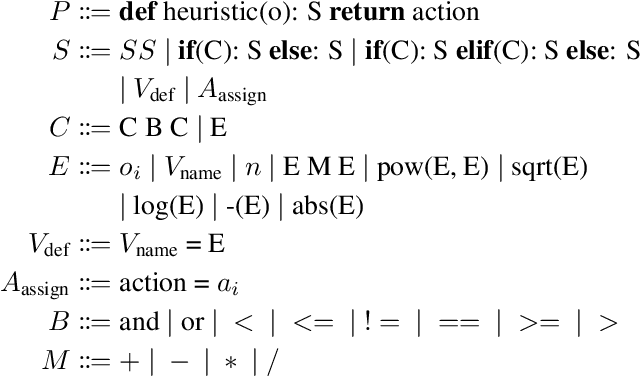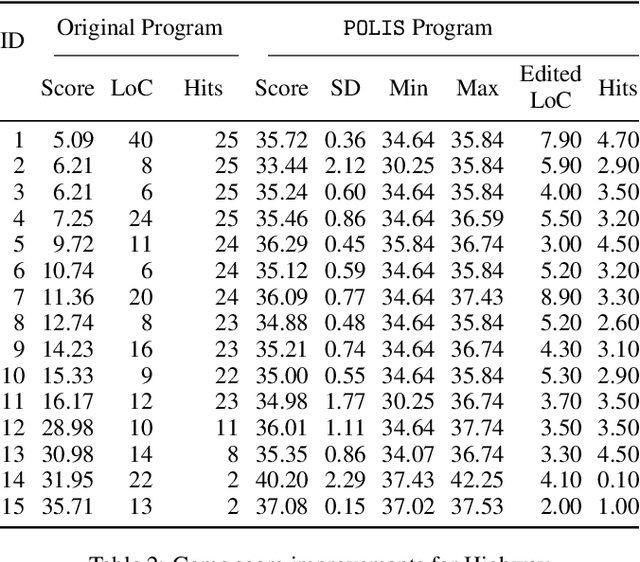Saqib Ameen
Program Synthesis with Best-First Bottom-Up Search
Oct 06, 2023Abstract:Cost-guided bottom-up search (BUS) algorithms use a cost function to guide the search to solve program synthesis tasks. In this paper, we show that current state-of-the-art cost-guided BUS algorithms suffer from a common problem: they can lose useful information given by the model and fail to perform the search in a best-first order according to a cost function. We introduce a novel best-first bottom-up search algorithm, which we call Bee Search, that does not suffer information loss and is able to perform cost-guided bottom-up synthesis in a best-first manner. Importantly, Bee Search performs best-first search with respect to the generation of programs, i.e., it does not even create in memory programs that are more expensive than the solution program. It attains best-first ordering with respect to generation by performing a search in an abstract space of program costs. We also introduce a new cost function that better uses the information provided by an existing cost model. Empirical results on string manipulation and bit-vector tasks show that Bee Search can outperform existing cost-guided BUS approaches when employing more complex domain-specific languages (DSLs); Bee Search and previous approaches perform equally well with simpler DSLs. Furthermore, our new cost function with Bee Search outperforms previous cost functions on string manipulation tasks.
Can You Improve My Code? Optimizing Programs with Local Search
Jul 10, 2023



Abstract:This paper introduces a local search method for improving an existing program with respect to a measurable objective. Program Optimization with Locally Improving Search (POLIS) exploits the structure of a program, defined by its lines. POLIS improves a single line of the program while keeping the remaining lines fixed, using existing brute-force synthesis algorithms, and continues iterating until it is unable to improve the program's performance. POLIS was evaluated with a 27-person user study, where participants wrote programs attempting to maximize the score of two single-agent games: Lunar Lander and Highway. POLIS was able to substantially improve the participants' programs with respect to the game scores. A proof-of-concept demonstration on existing Stack Overflow code measures applicability in real-world problems. These results suggest that POLIS could be used as a helpful programming assistant for programming problems with measurable objectives.
 Add to Chrome
Add to Chrome Add to Firefox
Add to Firefox Add to Edge
Add to Edge